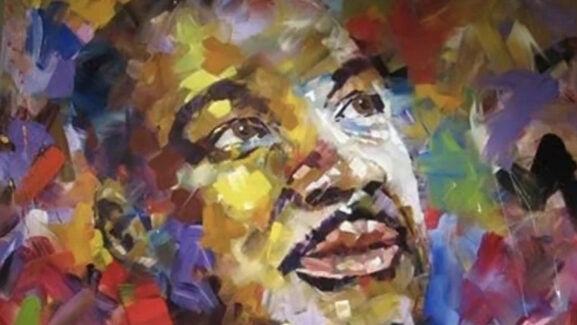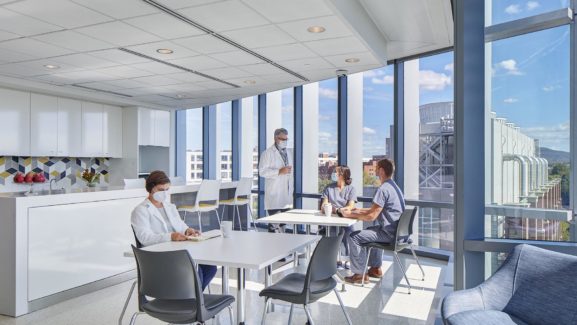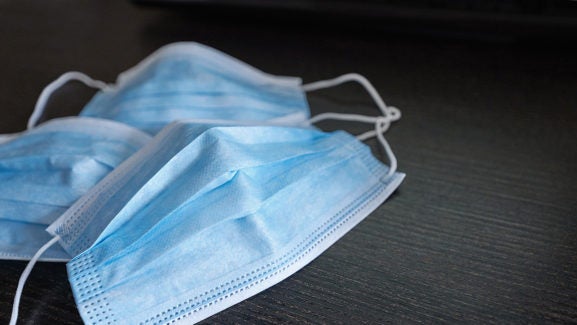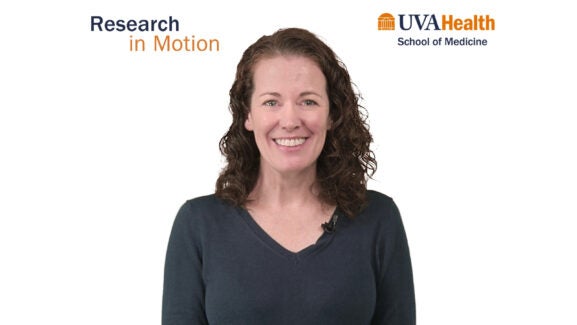
Meet Brianna Baldwin, Citizen of the Diné Nation and School of Medicine Class of 2025 Student
Brianna Sells Baldwin is a first-year medical student, Class of 2025, here in UVA’s School of Medicine. She grew up in Virginia Beach and her family is from the Diné (Navajo) Nation out west. Before coming to Charlottesville, she attended Christopher Newport University in Newport News, VA, earning a Bachelor of Science degree in Neuroscience. She then earned a Master of Science degree in Biomedical Sciences at Eastern Virginia Medical School in Norfolk, VA.
Welcome to UVA, Brianna! Tell us a little about yourself ….
What made you want to become a doctor?
I was inspired to become a doctor after witnessing family members and patients experience difficulties managing some of today's most common chronic issues: hypertension, diabetes, hypercholesterolemia, and obesity. After learning that there are drastically high levels of chronic, preventable illnesses faced both domestically and in many Indian Nations, I made it my goal to take care of the longitudinal health of people to effectively manage or prevent these diseases. I have a principal goal of working with underserved and indigenous populations because these are the communities that need care and public-health advocates.
Do you have a specialty you’d like to pursue? If so, what motivated you?
I am a member of UVA SOM's Generalist Scholars Program, a university program dedicated to research and mentorship for those intending to go into primary care. I am particularly interested in family medicine to combine my interests in women's health, children's health, and nutrition and preventative care as a future generalist. I was inspired to go into family medicine after shadowing a senior family physician who cherished the relationships he had with his patients' families and the long-lasting impact he made improving the health of his community.
What is your favorite aspect of the curriculum?
My absolute favorite aspect of the curriculum are our Social Issues in Medicine patient presentations. These typically involve a patient describing their relationship with their disease pertaining to the curriculum and how they navigate the insurance system, access to care, and other unique aspects of living with their disease. I think these lectures give amazing context to our roles as future physicians; we spend 20 minutes discussing with the patient the disease that they have coexisted with for years and, at times, for life. I think that patient care involves taking care of the person first and what they need to successfully manage their illness. I am immensely grateful for patients sharing their stories with us so that we may better manage the care of others as future clinicians.
November is Native American Heritage Month. Do you or your family/friends celebrate this month in a particular way?
I am a citizen of the sovereign Diné (Navajo) Nation which spans three states: New Mexico, Arizona, and Utah. First and foremost, every day is a good day to be indigenous! We are a proud nation of sheepherders, silversmiths, weavers, farmers, and scholars. My family appreciates the additional educational sessions on indigenous history and cultural traditions held at tribal colleges and institutions across the country in November. However, there is a long way to go in amplifying indigenous voices and issues.
My relatives and friends use this month to showcase our connection to mother earth through prayer, songs, and stories. We use this month to raise awareness of missing and murdered indigenous women, cultural appropriation, treaty violations, boarding school trauma, and the harmful effects of mascots, to name a few. What most do not know is that Thanksgiving is a day of mourning for some native tribes. The Native American Student Union (NASU) at UVA has met this month to hold a pan-Nation celebration, land acknowledgment, panel discussion on cultural topics, and observe National Native American Heritage Day on Friday, Nov. 26, 2021.
How can we get involved during Native American Heritage Month?
The Monacan Indian Nation calls this land home. I strongly encourage all the people of Charlottesville to take time during this month to educate themselves on the Monacan people, the other Indian Nations in Virginia, and the major issues that indigenous people are battling today.
There are many talks held by Indigenous Studies faculty and students at UVA regarding indigenous culture and history that are virtual or free attendance. The Monacan Ancestral Museum is nearby and operated by the Monacan Nation. Find out who the traditional owners and Elders are of the land you are on; we have seven federally recognized Indian Nations in Virginia and nearly 600 in the U.S. alone. Support indigenous businesses and educational programs. I think being an advocate for the environmental and social change that indigenous communities are leading in public spaces is a great step toward allyship with indigenous people.
You mention going into medicine to care for indigenous populations. What are some of the major issues that indigenous people face today regarding healthcare?
The most pressing example in our current pandemic state is the fact that, according to CDC data, Native Americans have suffered the worst outcomes of COVID-19 cases, hospitalizations, and deaths of any racial/ethnic group in the U.S. In my own homeland, the Navajo Nation reported a 3.4% COVID-19 infection rate in June 2020, higher than any U.S. state. Today, Indian Nations continue to suffer from disproportionally higher amounts of COVID-19 cases, despite the highest rate of COVID-19 vaccinations among any racial/ethnic groups in the U.S. Some of the major healthcare disparities include access to basic necessities in many of our communities including clean water and power, underfunding of federal Indian Health Services (IHS), shortage of health facilities, and lack of healthcare equity in non-IHS institutions. The effects of this disease were coupled with the fact that American Indian and Alaskan Native mortality is at higher rates than other U.S. citizens in many categories, including chronic liver disease, diabetes mellitus, and chronic lower respiratory illnesses.
Unfortunately, these alarming statistics and rates go incredulously unnoticed by mainstream U.S. media and public awareness. This leads to indigenous people oftentimes needing to become our own advocates to directly make change in our communities.
Does your background/heritage influence how you approach healthcare?
As a Diné woman who is taught by faith and spirituality to “walk in beauty” — a fine balance meant to maintain one’s mental, physical, and spiritual health — I believe that these values may be ascribed to the holistic career as a family medicine physician. The role of a family medicine practitioner is to ensure that their patients are taking preventative health measures in their daily lives to ensure the physical, mental, and spiritual health of their person. In addition, a family medicine physician is expected to perceive minor changes in mental and physical health that may be potential precursors to illness. I believe that my intrinsic cultural and spiritual values for drawing concern to what may be perceived as minor imbalances in health may serve as valuable clinical skills in primary care.
I am excited to go forward into the future of medicine always learning and treating my patients with the integrity, respect, and care they deserve. My people say “go pursue an education to help your Indian Nation and your community”; I live my life with this mindset to better the world for my people, patients, friends, and family.
Indigenous people have, unfortunately, remained underrepresented in medicine while our communities suffer significant issues regarding access to care, cultural competency, and healthcare equity. My current goals as an executive member of the national Association of Native American Medical Students (ANAMS) and Native American Student Union (NASU) at UVA are to help indigenous students pursue careers in medicine and healthcare at the local and national level. Currently, I am mentoring Monacan high-school students with NASU, as well as underrepresented high-school students with UVA SOM’s Student National Medical Association (SNMA) wonderful Discover Medicine program.
What do you love about studying at UVA?
I love the versatility of the landscape of Charlottesville. I love that I can walk my dog to a local dog park with a vibrant pet scene in the morning, walk The Corner for lunch in the afternoon, run with friends across the beautiful campus or local running trails mid-day, and have some wonderful art exhibit, film screening, or university concert to look forward to in the evening. Charlottesville has local camping grounds, hiking trails, cafés, vineyards, parks, and everything in between, to make a modest city a wonderful place to live and study as a student. I am also an avid skier and greatly looking forward to riding the slopes at nearby Wintergreen this coming winter.
Latest News



